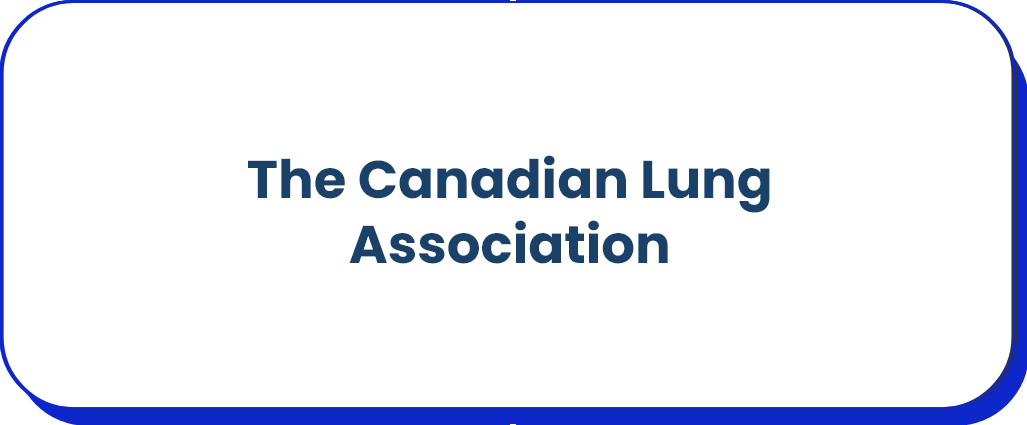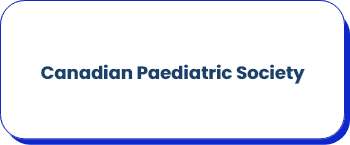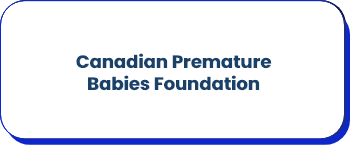FREQUENTLY ASKED QUESTIONS
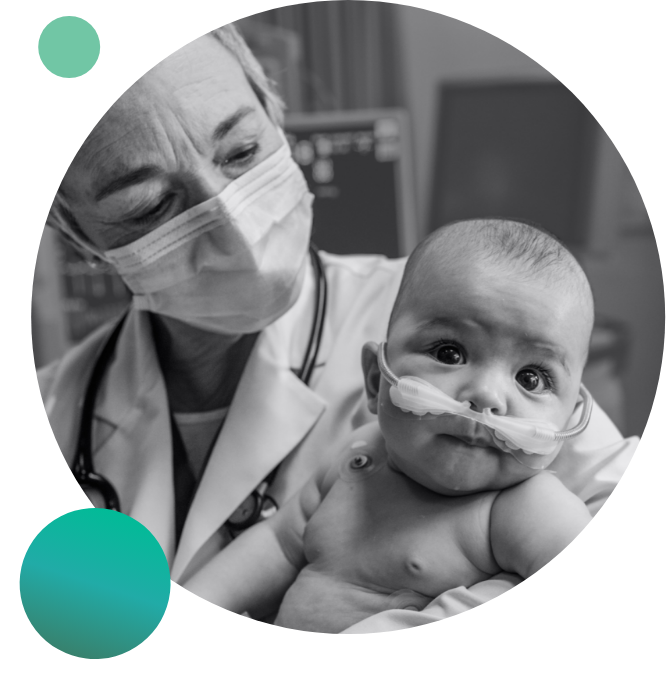
The best time to learn about RSV is before your baby does. As a parent, you probably have a lot of questions. We have the answers.
RSV stands for “respiratory syncytial virus.” It is a virus that occurs seasonally (usually from the winter months through to spring) and is easily spread. It usually causes mild illness but may also lead to conditions such as bronchiolitis and pneumonia, which can be severe in infants – especially those under the age of 1 year.
RSV is very common among infants – nearly all will have been infected with RSV by the age of 2.
Any infant can catch RSV. While most RSV cases are mild, it is not possible to predict which healthy infants could get seriously ill and end up in hospital.
Studies have shown that most infants admitted to hospital with RSV have no other health problems. This makes it hard to predict exactly which infants will become severely ill.
Mild symptoms may include a runny nose, sneezing, and coughing, while severe symptoms can include wheezing and difficulty breathing.
There are limited options to address RSV disease once patients have been infected. Treatment of severe RSV infections generally relies on supportive care, including oxygen and fluids.
Because the RSV infection can look like a cold, with symptoms like a runny nose, sneezing, and coughing, testing often isn’t required for a diagnosis. However, if your doctor suspects RSV based on medical history, the time of year, or a physical exam, a lab test may be run to confirm the diagnosis. This can commonly include a mouth swab or blood test.
Currently authorized prevention options for your baby include monoclonal antibodies (BEYFORTUS®, SYNAGIS®).
BEYFORTUS is used for the prevention of RSV lower respiratory tract disease in neonates and infants during their first RSV season, and in children up to 24 months of age who remain vulnerable to severe disease through their second RSV season.
SYNAGIS is used for the prevention of serious lower respiratory tract disease caused by RSV in pediatric patients at high risk of RSV disease.
ABRYSVOTM is a vaccine authorized for pregnant individuals from 32 through 36 weeks gestational age for the prevention of lower respiratory tract disease (LRTD) and severe LRTD caused by RSV in infants from birth through 6 months of age.
Additionally, getting recommended immunizations (e.g., measles vaccine) may protect you and your child from some of the complications of respiratory infections.
Talk to your healthcare professional about RSV prevention options that may be available for your baby.
NOTE: 100% protection cannot be guaranteed by the use of immunizations.

SYMPTOM TRACKER
-
What may be happening on days 1-2:
- Baby inhales droplets containing RSV
Symptoms can include:
- No symptoms

-
What may be happening on days 3-5:
- Baby begins to feel ill and experience symptoms
Symptoms can include:
- Congestion
- Runny nose
- Fever
- Irritability
- Decreased appetite

-
What may be happening on days 6-8:
- RSV spreads to lower respiratory tract
Symptoms can include:
- Cough
- Rapid breathing
- Wheezing and/or grunting noises
- Nasal flaring
- Abnormal chest movement when breathing

If you notice any of the following in your baby, contact their doctor right away
Short, shallow, and abnormally fast breathing: Look for chest wall retractions. Think of
chest wall retractions as a “caving-in” of the chest in between and under the ribs.
Your baby has a wheezing cough.
Nasal flaring: When your baby’s nostrils spread out with every breath.
Your baby is unusually tired or has a blue tint to their lips or fingernails.
Your baby has a poor appetite.
Your baby has a fever: 38°C / 100.4°F or higher for a baby younger than 3 months.
39°C / 102.2°F or higher for a baby older than 3 months.
%20x3.png)
.png)
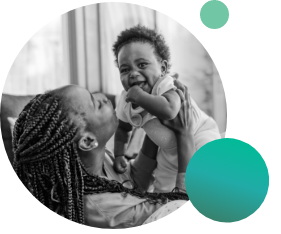
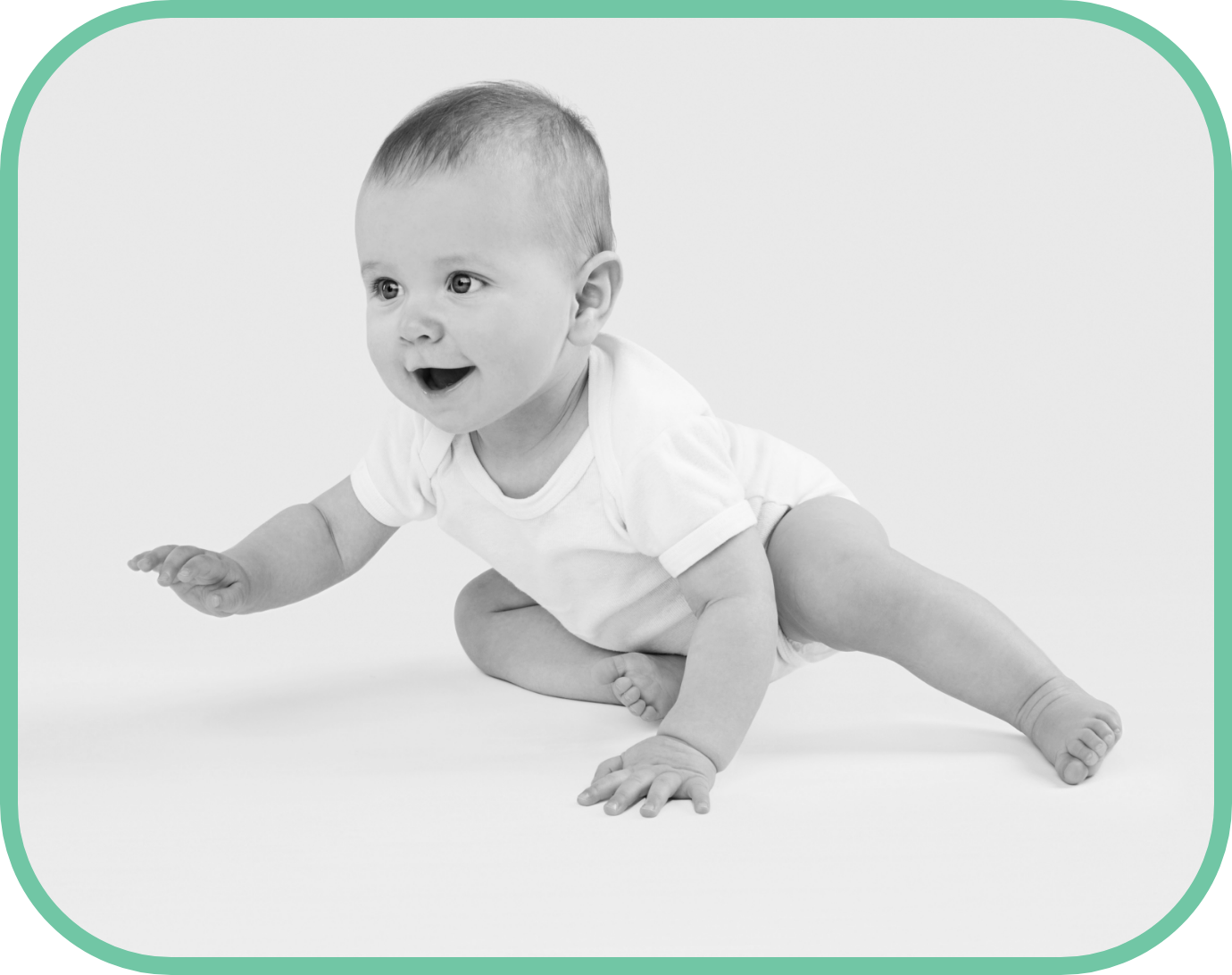
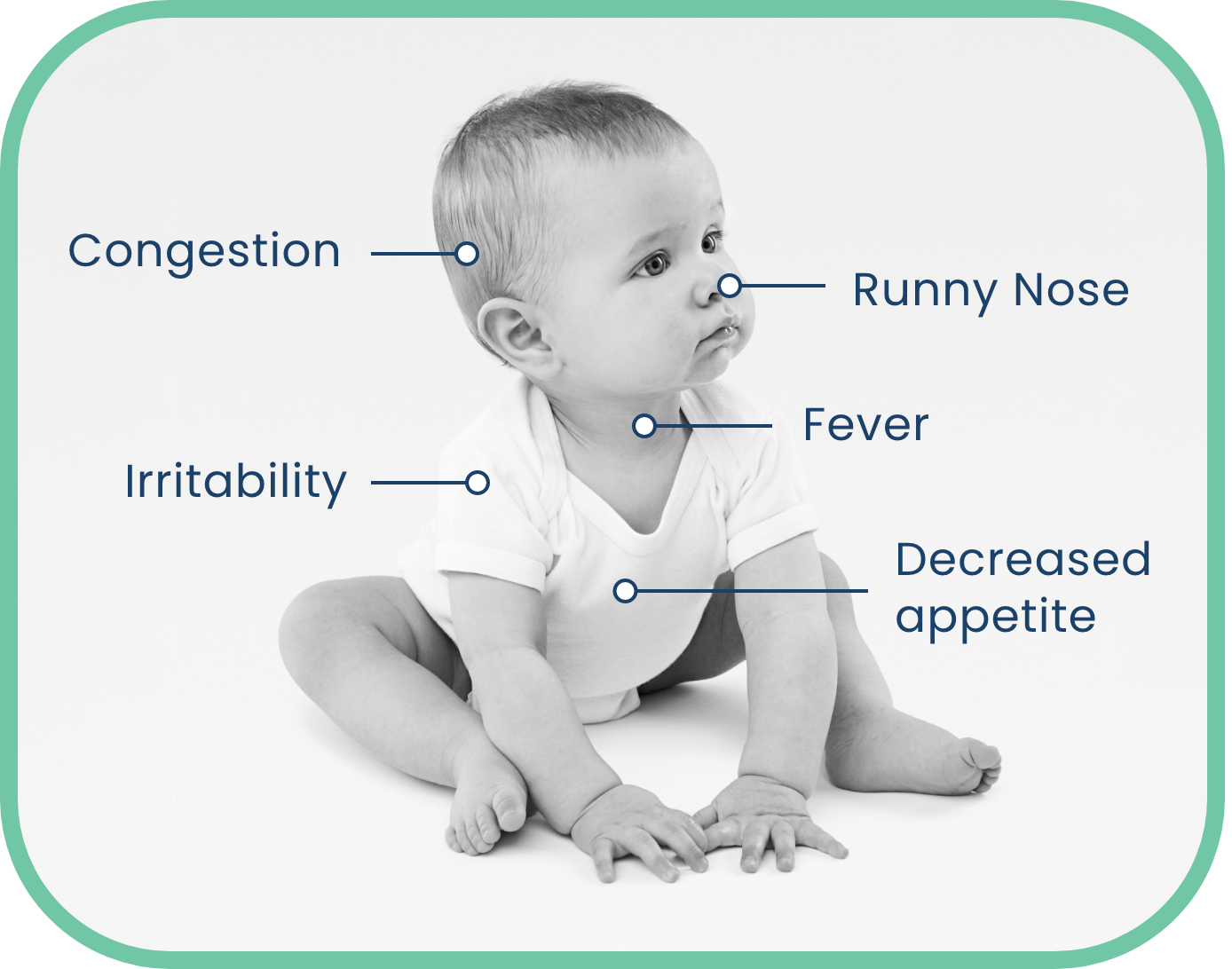
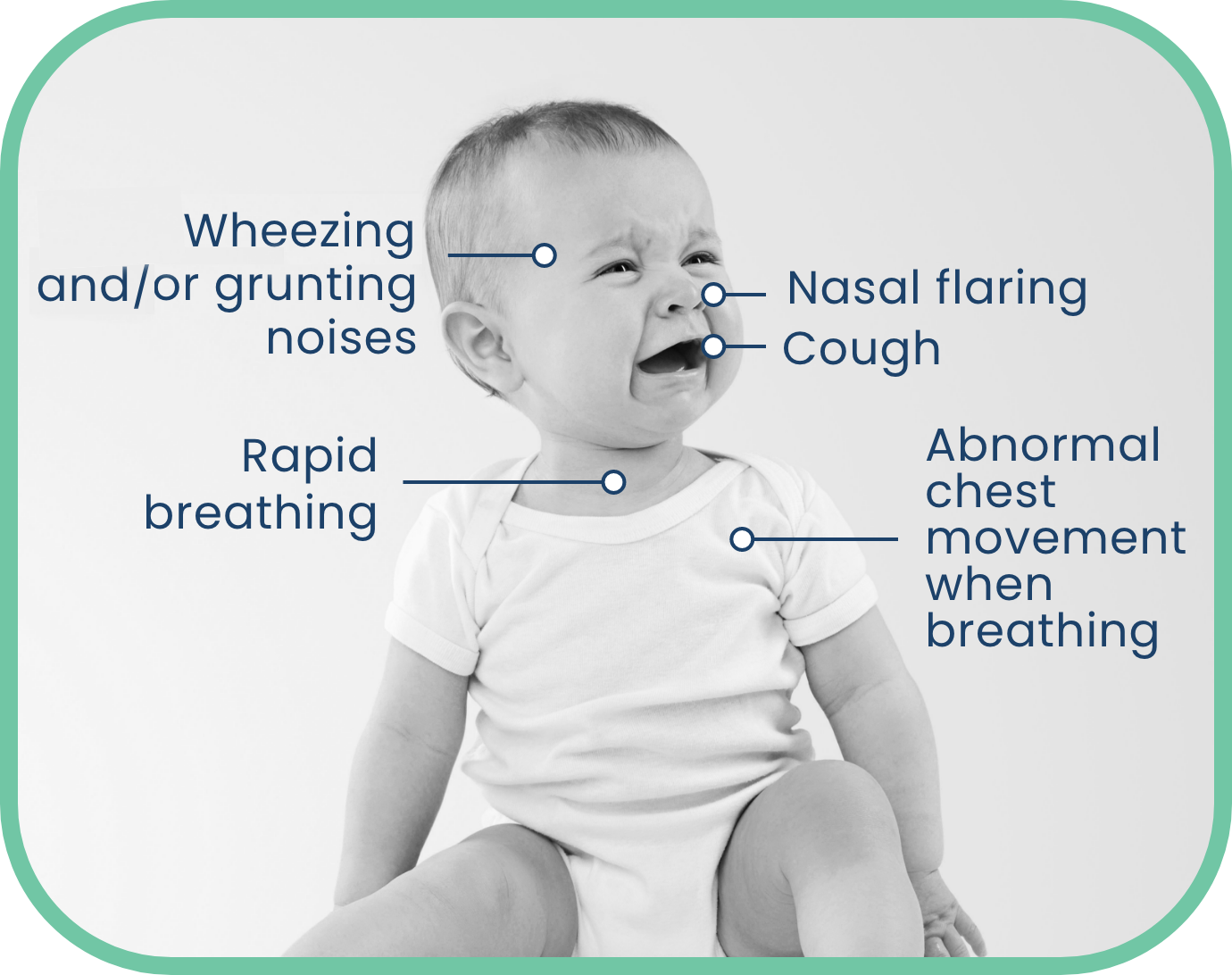.png)
